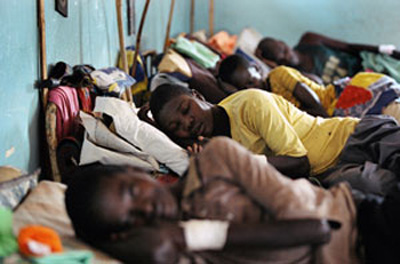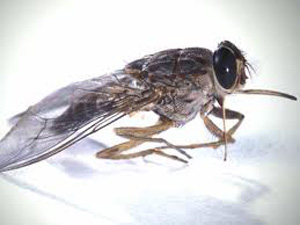According to local media reports citing a study, due to global warming, African trypanosomiasis (commonly known as sleeping sickness) is spreading to southern Africa, which may cause more people to face the risk of disease.

Global warming has led to the spread of sleeping sickness to southern Africa, with a significant increase in the number of patients.
The UN meteorologist proposed in 2007 that the global temperature will increase by 1.1 degrees Celsius to 5.4 degrees Celsius depending on the amount of carbon dioxide emissions. Scientists headed by the US Centers for Disease Control and Prevention, Sean Moore, conducted a computer simulation study to estimate the changes in the tsetse fly and its carrying trypanosomiasis parasites that spread sleeping sickness in the coming decades.
Studies show that in the future, affected by global warming, some parts of East Africa will become overheated in the future, which is not conducive to the survival of tsetse larvae. The currently too cool parts of East Africa and southern Africa may become a potential breeding ground for tsetse flies.
Scientists have found that an average temperature of 20.7 degrees Celsius to 26.1 degrees Celsius causes an outbreak of sleeping sickness.
At present, 75 million people worldwide are facing the threat of sleeping sickness. According to the study, scientists predict that by 2090, this number may increase by 40 million to 77 million.
The results of this study were published on the 9th in the Junction magazine sponsored by the Royal Society. Previous studies have shown that infectious diseases are related to climate change. Warming has caused a dramatic increase in the incidence of epidemic diseases such as cholera, dengue fever, yellow fever, malaria, meningitis and sleeping sickness in Africa.

Tsetse fly.
The tsetse fly is a Diptera insect with a slender body and a green body that is widespread in the African continent. When the insect bites a human, it will inject the parasite parasite into the human body, infecting the human brain, causing drowsiness symptoms, if not treated in time there will be life-threatening. According to the World Health Organization, 70,000 people in East Africa, Central Africa and West Africa suffer from sleeping sickness each year.
Crowd Control Barrier,Pedestrian Barrier,Removable Safety Fence
Ornamental Fence Co., Ltd. , http://www.nsafence.com